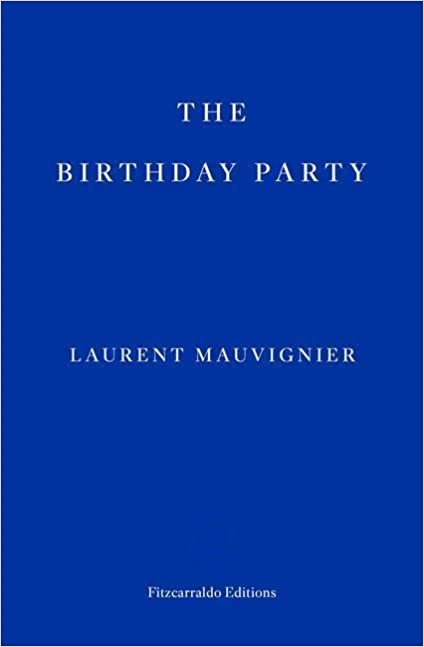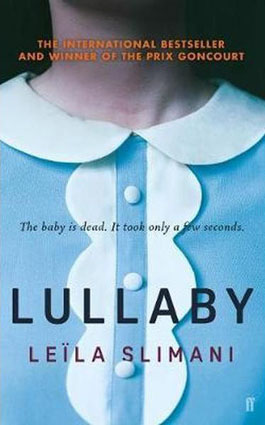It's been a while since a novel has kept me up reading late into the night because I need to finish it and find out what happens. “The Birthday Party” could definitely be categorized as a thriller because its sense of danger and tension gradually escalates over the course of the book until it reaches a feverish pitch. However, it's structured in an interesting way with elaborate detail and intricate sentences which fully account for the multitude of thoughts, memories and impressions of I ts central characters. This creates a unique in-depth understanding of their points of view. The story is set in a hamlet in the French countryside where Patrice prepares for his wife Marion's 40th birthday party. Their daughter Ida draws pictures to give to her as a present and she's guided by their older neighbour Christine who is a slightly eccentric artist. Although this setting seems peaceful and idyllic ominous uncertainties linger especially as Christine receives anonymous threatening letters and the party which is about to kick off is crashed by sinister uninvited guests. What follows is a slow-building tale which teasingly reveals the motives and secrets of these characters. The tightly wound plot cautiously unravels until the truth is laid mercilessly bare.
This is a novel which requires some patience at first because its pace initially appears so languid. But it becomes increasingly compelling as all the elements which consume the moment to moment lives of these characters reveal how people are overwhelmingly preoccupied by thoughts of the past and projections of the future. At least, this is the case until something disrupts the self-designated line on which they walk through the world. Then they become firmly rooted in the present. The author describes this in the novel as “the surprise giving way to a mute shock so strong that all reality finally dissolves into a sensation of brutal hyperrealism”. Through the domestic drama and tense stand off in this story Mauvignier poignantly shows the perilous uncertainties of life. These persist no matter how firmly people believe in the narratives they write for themselves and it reveals the intense clash which occurs when these narratives are disrupted. The precariousness of self invention is reflected in Christine's method of painting: “you can layer over your life to call it into being, superimpose coats of realities, different lives so that at last only one is visible, nourished by the previous ones and surpassing all of them”. The conflict which occurs between these characters reveals how their sense of being is violently torn apart when it infringes upon the liberty of others. In particular, it exposes how a certain type of hyper-masculine sensibility is remorseless in its determination to dominate and control.
It's clever how the author builds a sense of mystery surrounding his characters and their motives. Many times when I began to feel weary of the convoluted tangle of this situation, I'd be drawn back in wondering what's really going on here and what's going to happen next. Mauvignier certainly keeps the reader guessing and I can see how some might feel information is being artificially withheld for the sake of suspense. But I think as well as building a sense of tension the author is reflecting the reality of daily existence and our relationship with time. In fact, life begins to feel like its composed of blocks of time which are moveable pieces. The present is often overlaid by a future which might never materialize and frequently it doesn't as events mean the characters' plans must be rewritten. The novel is paced to reflect this where experiences move quite slowly until lots of surprising things suddenly happen all at once. At one point Mauvignier adopts a cinematic language to describe how: “Now what happens goes very quickly, and it's as though only a very long slow-motion shot can make it visible.” Action sequences are notoriously difficult to present in novels but I think this story masterfully conveys events which occur quickly. Rather than trying to imitate the visual impact of film, Mauvignier shows in his text how cinema reflects the heart-stopping moment when something calamitous occurs in an instant. It takes a certain style of presentation to show how this decisive moment will change things forever.
This novel could be read simply for its suspense though I can understand why some readers' patience is tested. However, I think its overriding message makes more of an impact than any generic potboiler and this is because of the distinctive style Mauvignier uses to relate this story. It's like Virginia Woolf meets Patricia Highsmith. Though the setting is provincial and it presents only a tiny community it speaks to some of the current concerns of the wider world. It reveals the dangers of group mentalities and an incel-type misogynistic frame of mind. Also, about halfway through the book I felt completely hooked and knew I had to finish it even if it meant I would lose some sleep.

















